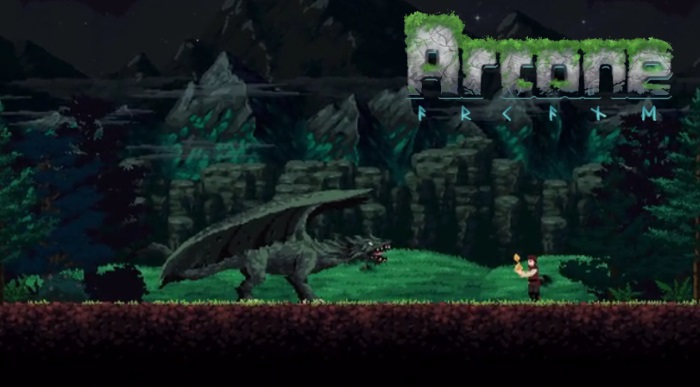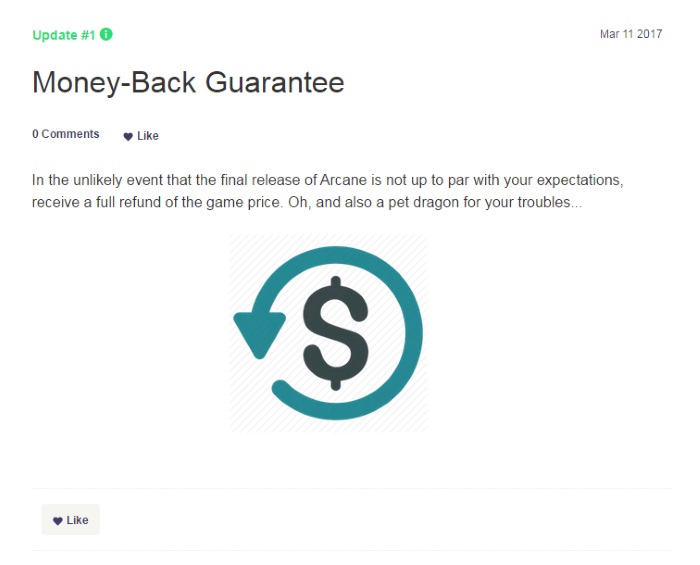Crowdfunding by its very nature is a risky business. You’re giving developers your money and trusting them to deliver on what they promise with little recourse if they fail. Tidal Games is trying to circumvent these concerns. They’ve promised a full refund to anyone who isn’t happy with their adventure/survival RPG, Arcane, after they release it.
While this offer may seem like a potential backers dream come true, it carries certain implications, not only for this project, but others like it. The Kickstarter community has always been adamant that when you pledge toward a project you aren’t actually buying anything, you’re supporting development. Backer rewards are rewards for pledging, not goods purchased. It’s not uncommon for backers to request refunds, especially if developers don’t hold up their end of the bargain. The problem is that the campaign’s verbiage sets Tidal Games up to potentially fail regardless of the project’s outcome.
Right up front, potential backers are promised that they can receive a full refund if the game doesn’t live up to their expectations. On the one-hand, the team must be extremely confidant in their ability to deliver. On the other? $23,927 isn’t a large funding goal to begin with. It’s difficult to understand where Tidal will draw money for refunds once they’ve spent the budget on developing Arcane.
Infinite Problems With Finite Funding
Perhaps I’m overthinking this, but it seems far more likely that in a naive attempt to overcome possible objections, the developers are setting themselves up for trouble in the long-run. Clearly if they don’t make the game they promised they should do right by their backers and issue a refund. If, however, they deliver exactly what they said they would (and what backers paid for) why give people the option to demand refunds after the fact? The money from the Kickstarter will be long gone by then so the devs will likely end up paying the refunds out of pocket until they can start generating profit.
https://youtu.be/Huop8s8HlCI
Many developers attempt crowdfunding as a way to grow a community around their projects. Here they can find people who are as interested and invested in seeing their game developed as they are. So, how invested and supportive will those same people be when they are just waiting for the game to be done so they can try it and get their money back? Even if the majority of backers don’t ask for refunds there will still be a few who do so just because they can. Incurring sudden financial struggles right as your game is released could ruin even a solid project.
It’s a gesture that while well-intentioned has the potential to do more harm than good. It also sets a dangerous precedent for any sort of backer remorse leaving developers in the red.






I think it would take a special kind of creep to back to take advantage of indie developers by backing a game with the intention of asking for a refund once it’s released so they could have it for free. I’d think anyone who would set out to do that would just pirate anyways. Besides Steam and GOG both offer a limited refund so this sort of thing isn’t really avoidable.
As we all know Kickstarter doesn’t really do anything if project creators flat out don’t deliver, completely change a product from the original pitch, etc. So a money back guarantee is a nice gesture but technically it’s not something that could actually be enforced. Nevertheless, I commend the developers for standing by their game like that.
The game looks and sounds fantastic and the digital copy tier was only ~$8 so I backed it. I would only ask for a refund in the event that the final release was a buggy mess or had seriously changed from the game that was pitched to us. I expect it will be an interesting game… I hope they are able to meet their funding goal.